In this easy tutorial, I show you how to make a gorgeous piece of batik art using a glue stick and home-made fabric paint.
Disclosure: I am delighted to be working with Bostik as a Bostik Blogger. Each month the Bostik Bloggers create a craft that our readers can easily re-create at home. This month I am using Bostik Blu Stick and am so excited to share my results with you!
What is batik art?
Batik art is a technique for making designs on fabric or paper using a resist process. Traditionally hot wax is used as the resist to prevent dye from penetrating the material, leaving ‘blank’ areas that in the final piece show the colour underneath.
My spin on the batik process is using a glue stick rather than wax. Glue batik eliminates the use of wax and is a great technique to try at home.
What I used to create my batik art
- Bostik Blu Stick (Amazon affiliate link )
- Leaf Stencils
- Cotton fabric (I used an old pillow cover)
- Fabric paints
- Canvas for mounting (I repurposed an old one)
- Piece of cardboard and some masking tape
I used my own DIY fabric paint recipe for this project as I wanted a fabric paint that I knew would be washable without needing to be heat set as I didn’t want to iron the fabric while the glue was in place.
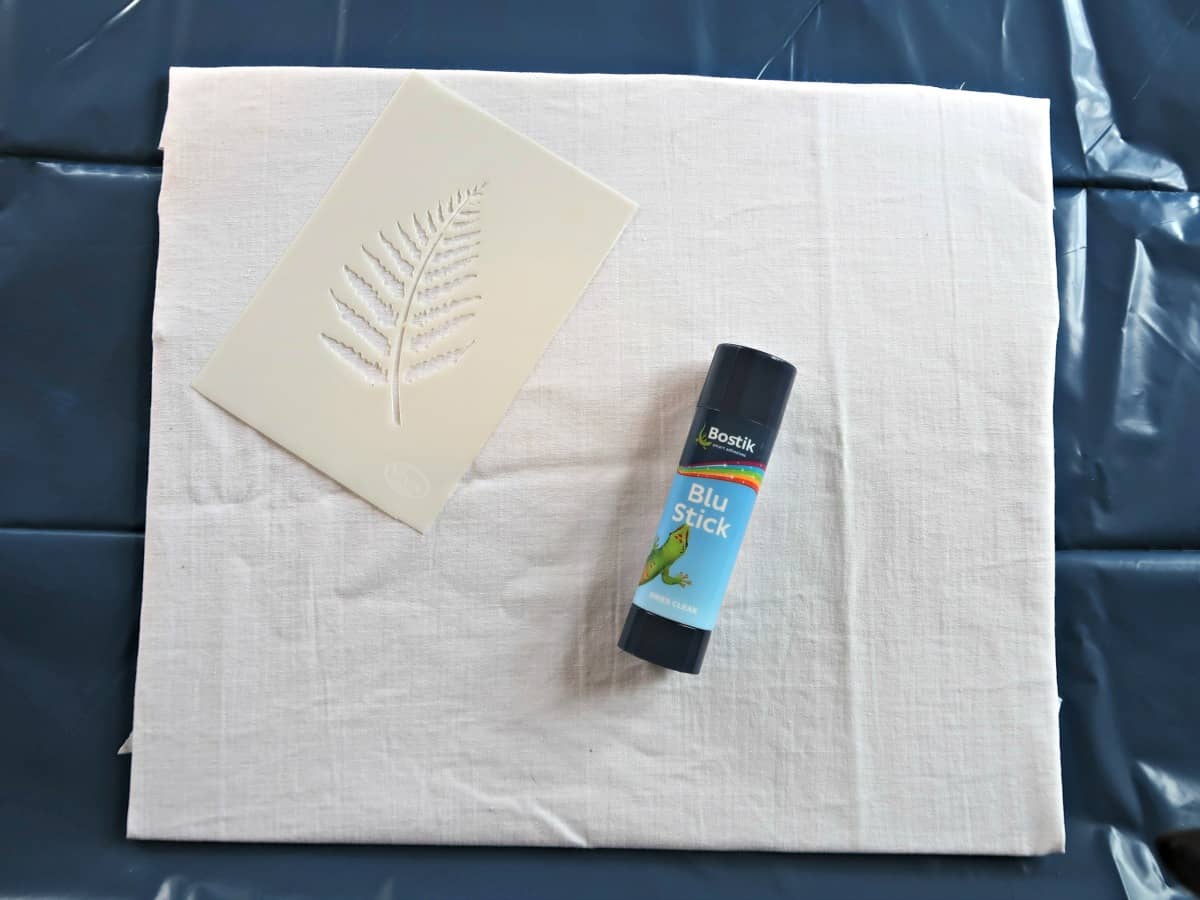
About Bostik Blu Stick
Glue sticks are brilliant things. They are clean and easy to use, and being non-toxic makes them perfect for the whole family to use. Bostik Blu Stick also has a couple of specific qualities that make it ideal for my Batik art project.
Firstly, Blu Stick is an acid-free, smooth stick glue that goes on blue and dries clear. Knowing where you have applied the resist is essential for Batik art, making Blu Stick perfect for this project.
Secondly, Bostik Blu Stick washes out easily, even when fully dry. Removing the resist to reveal your creation is the final stage of the batik process, so it essential with glue batik that the glue will wash out thoroughly.

How to make batik art using a Bostik Blu Stick
I wanted an autumn theme for my piece of batik art, so I chose a leaf stencil and fall colours for my fabric paints. As I use my own DIY fabric paint recipe, I can thin the paint to whatever consistency I want. I made these paints quite thin, so I could wash over the design easily with a soft paintbrush.

Cut a piece of fabric a little larger than your canvas so it’ll be big enough to wrap around the edges. Use the canvas as a template and cut a piece of cardboard the same size as it. Wrap the fabric around the cardboard and secure with masking tape.
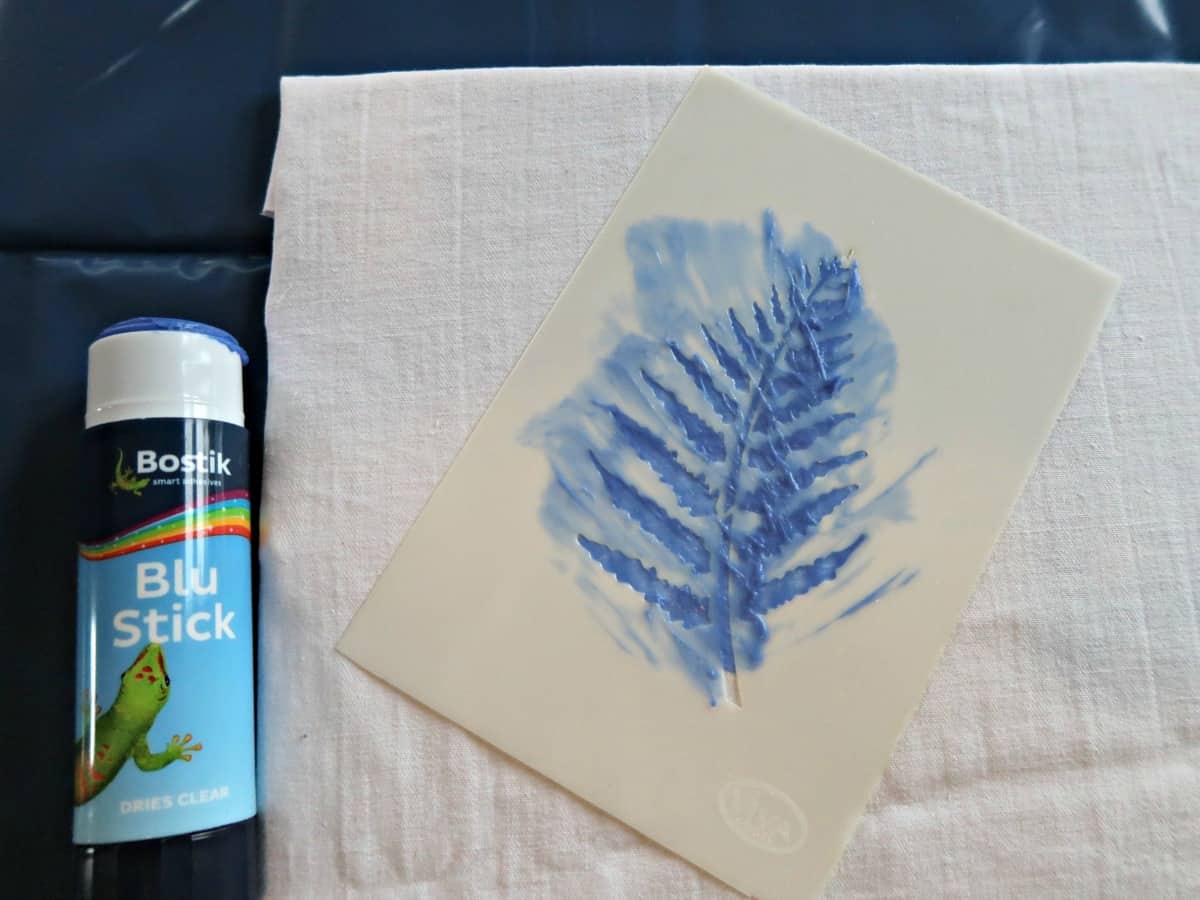
First, apply the Blu Stick to the fabric using the stencil as a template. Being able to see the glue makes it so much easier to work methodically without smudging it. These leaves will reveal the white fabric underneath when the glue is finally removed. Set aside to dry.
Washing the stencils regularly throughout the process will help avoid getting in a mess.
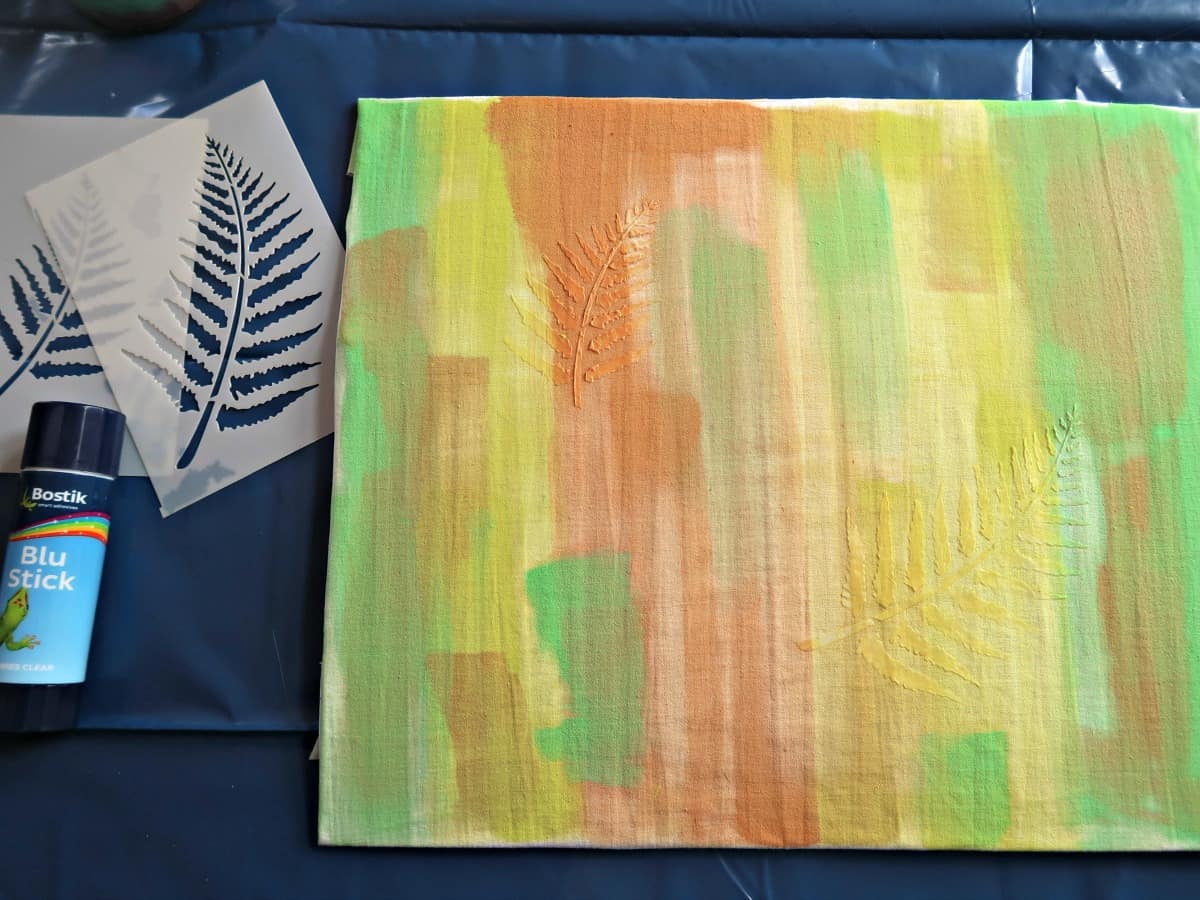
Once dry, paint a layer of fabric paint across the material. I chose a mixture of autumnal colours and found it easiest to paint them in stripes to get the effect I was looking for.
Leave to thoroughly dry before applying the next layer of Blu Stick leaves.

Once again, set aside to dry before adding your final layer of fabric paint.
Note: Starting with lighter coloured fabric paints and adding darker in the subsequent layers works best.

When the last layer of fabric paint is fully dry, remove from the cardboard. Throw your artwork in the washing machine and run on a rinse cycle to remove the glue.
And here is my lovely autumn batik art with the Blu Stick removed and the design revealed.
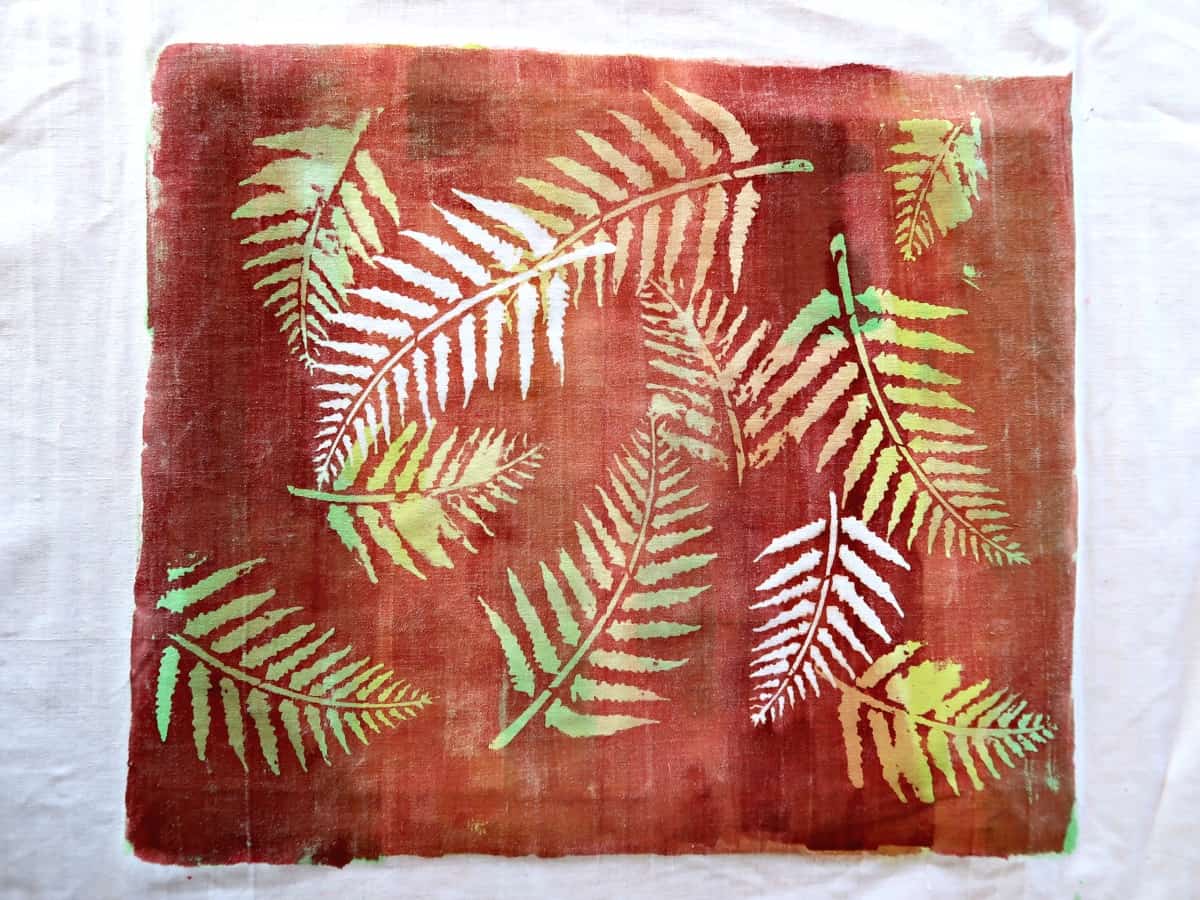
Mounting my Autumn Batik Art on canvas.
Bostik Blu Stick adheres fabric as well as paper, so I used it to mount my batik art to an old canvas.

I applied the Blu Stick liberally to the surface of the canvas and stuck my art in position, before leaving it to dry.
Once dry, I added glue to the edges of the canvas and wrapped the material around them, before trimming off the excess.

I am delighted to have found a use for the old canvas and pillowcase rather than throwing them out, and couldn’t be happier with my Batik art. Now I know how beautifully the Blu Stick acts as a resist for making batik, I’ll be making many more in the future.

If you have enjoyed our batik art using a glue stick project, why not check out some of our other quirky printing and dyeing ideas. You can find a list of our favourites below.
How to Make Unique Eco Prints Using a Steamer
Have you ever heard of Eco Prints? Eco printing is the process of using natural plant materials such as leaves, flowers and bark to dye paper or textiles.
How To Make Simple Reverse Prints Using Blu Tack
We show you how to make simple, gorgeous reverse prints using Blu Tack. Reverse prints are perfect for use as greeting cards and home décor.
How to Make Brilliant DIY Fabric Paint at Home
In this tutorial we show you how to make fabric paint from acrylic paint by adding household ingredients. The result is a DIY fabric paint that not only looks fabulous, but is also washable. You didn’t even need to set it with heat!
How to Make Dye from Lichen
We have been experimenting with making dye from lichen with excellent results. Click through for our step by step instructions.
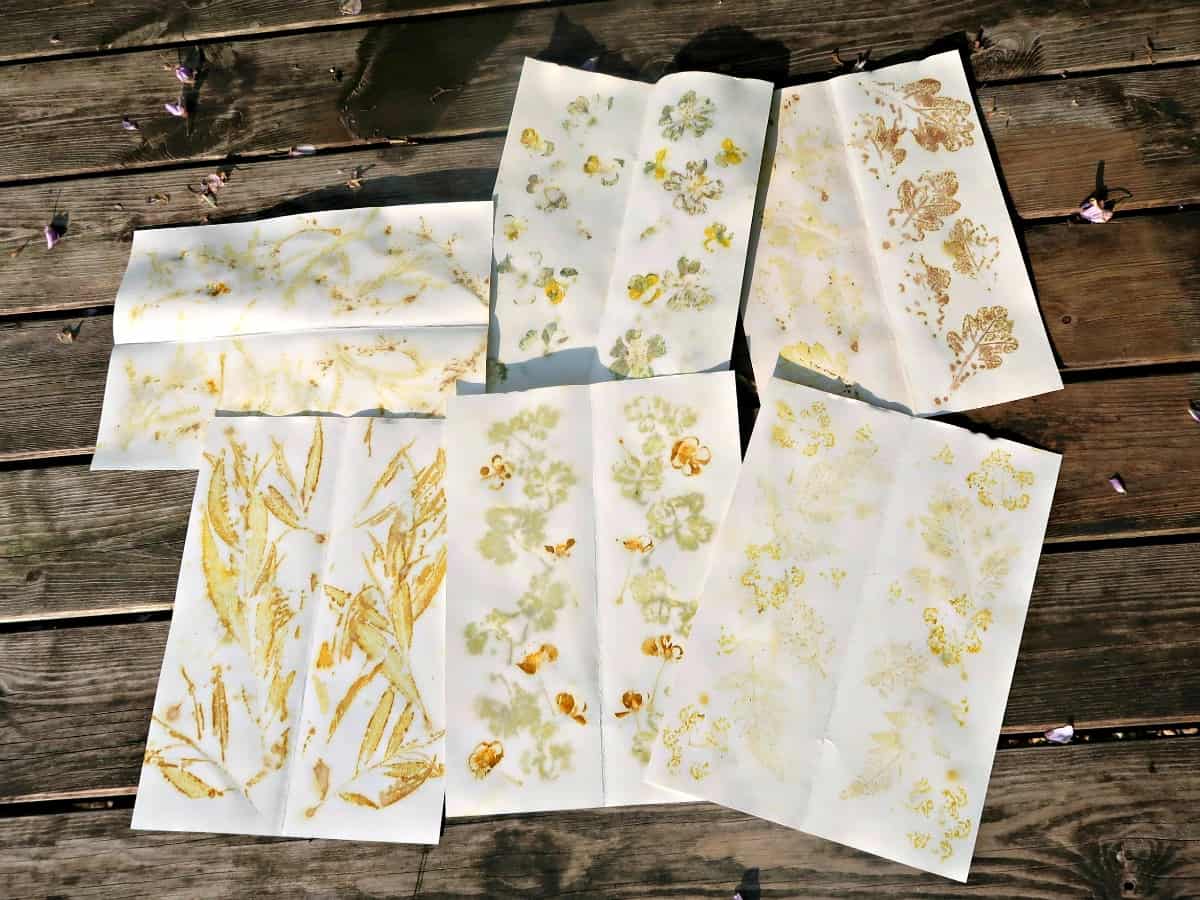
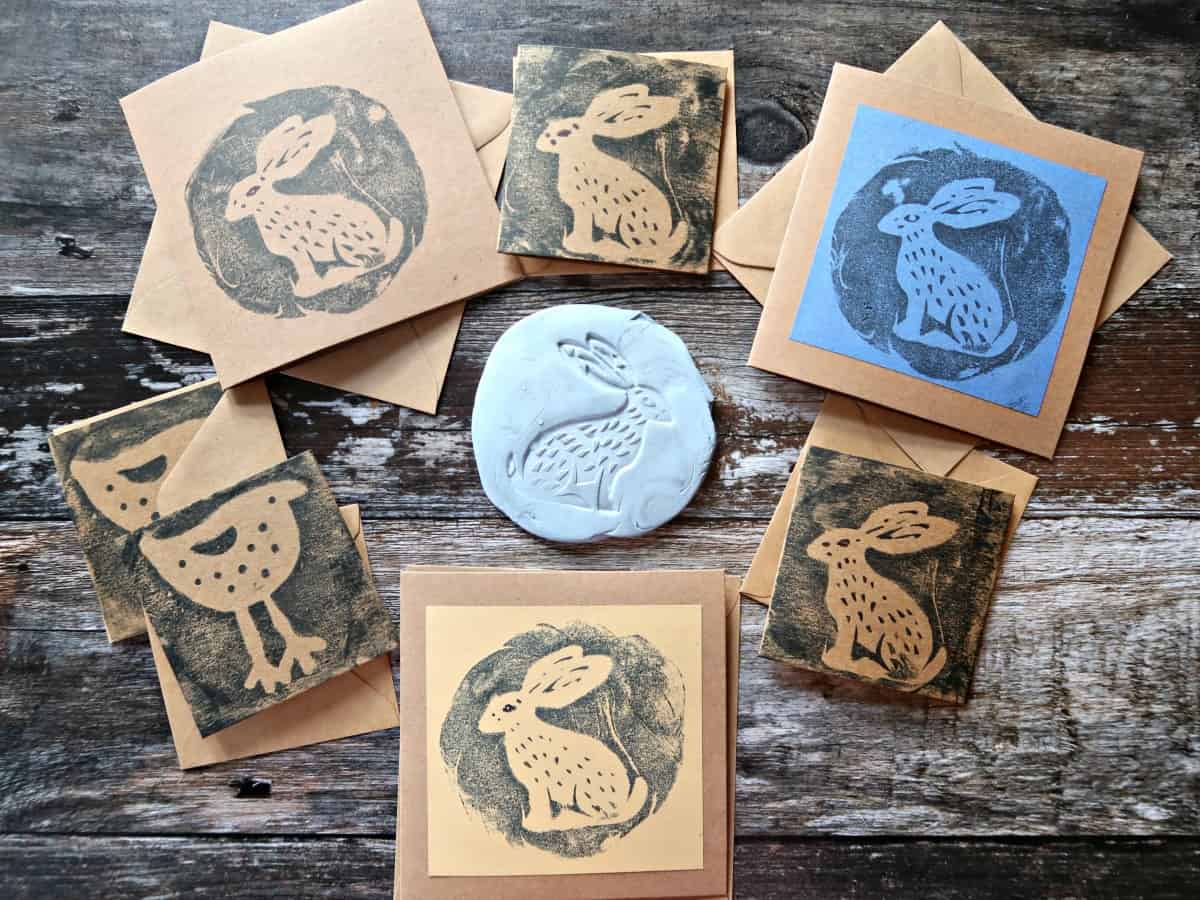
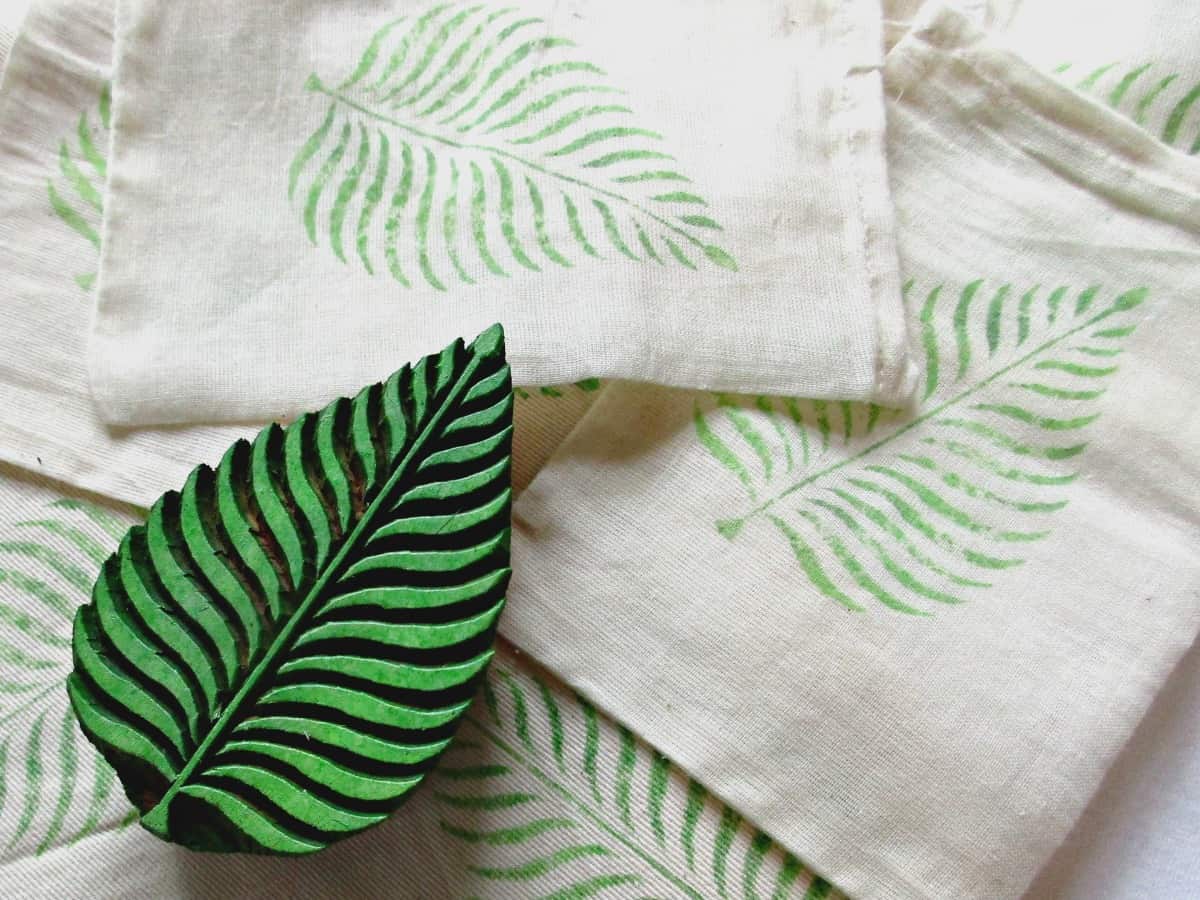
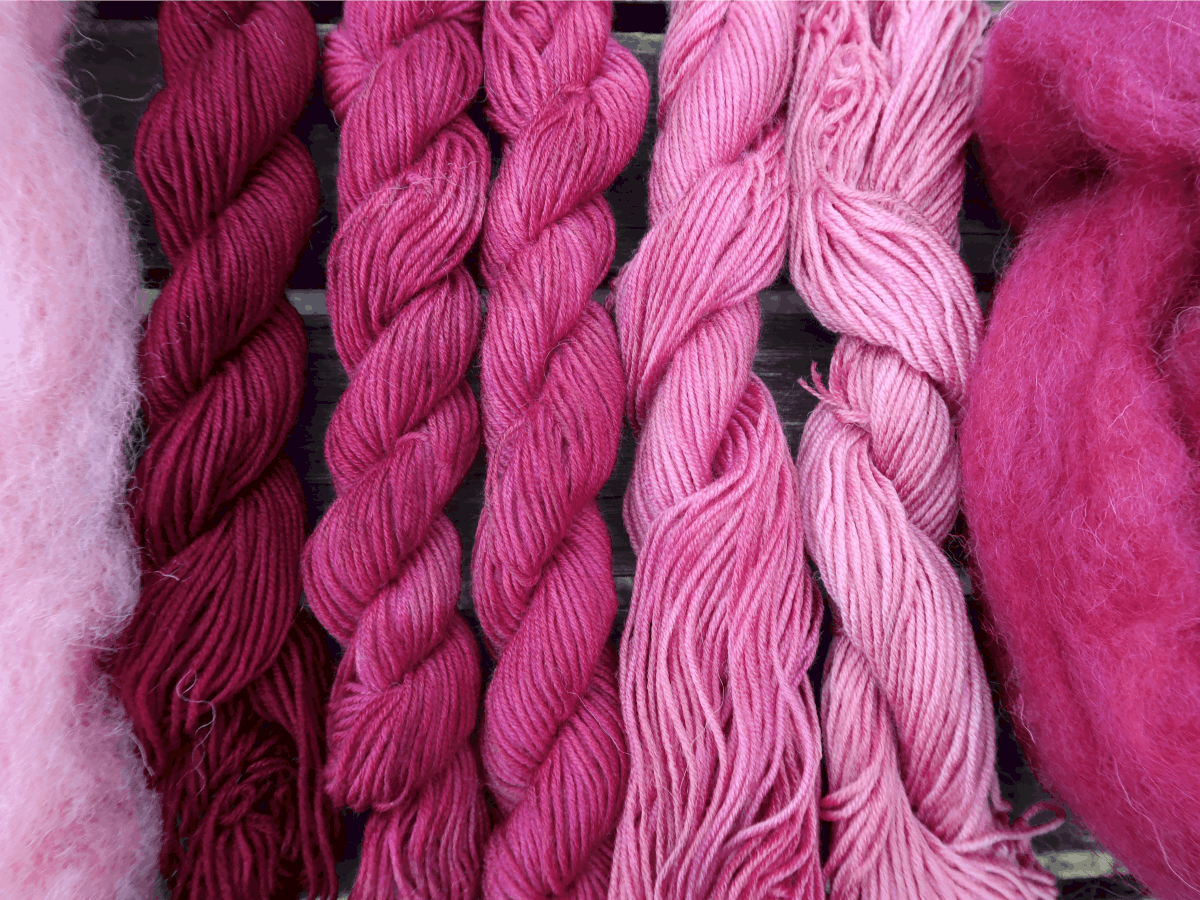
14 comments
I have a question. Can you spritz a bleach/water mixture over the dried glue? Thanks.
I haven’t tried it Chris but I reckon it would work as long as it wasn’t so much that it started to dissolve the glue. Do let me know how it works out if you do try it :)
Felicitaciones! !Hermosos trabajos y maravillosas técnicas.
Thank you so much Maria :)
Does one have to use the Bostik Blu Stick with the black cap, or will the Bostick Blu Stick with the blue cap work? The stick with the black cap is very difficult to find. Do you think this process will work on silk?
Many Thanks,
Cheryl W
Hi Cheryl I imagine the cap colour change is just a package change and the glue is exactly the same so will work just fine. I don’t see why the process shouldn’t work just as well on silk but would recommend you test it out on a small piece first :)
Do you think it’s possible to do directly on the canvas?
Oh good question Dora. You will need to wash the glue off but I think a canvas should hold to that if you go carefully. If you do try it let me know how you get on :)
Love your ideas
Thank you so much for your kind comment Cindy :)
Oh my goodness, this is brilliant! I remember doing wax batik at school and loving it but you’ve taken it next level here!
Thank you for your kind comment Julie :)
Great idea
Thanks Saskia :)